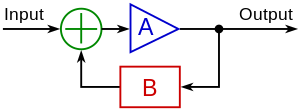 Wasting the time public servants
Wasting the time public servants
I was talking to someone in one of the many branches of the public service yesterday. “And we get a lot of time-wasters”, he said.
This is a narrative, of course. It is the way we speak rather than any statement of fact. But it raises the question, “Why do we regard the public as wasting our time?”
Or is our time wasted by management who are poorly trained?
Sadly, targets are the culprits.
This is the psychology.
- A target creates a goal. Yup, that is what was intended.
- Goals create feedback loops. Yes, we all know targets distract people from their jobs. We have been complaining for years.
- And there are two further points I would like to add.
- Simplifying life slightly, we have fast feedback loops and slow feedback loops.
- Public servants have infinitely slow feedback loops. Slower than “Mum” who runs a house and who cleans the house today and cooks your dinner, and cleans the house tomorrow, and cooks your dinner. In short, the work of those who serve is never done. It is very reactive, too. In plain English, public servants hang around a lot. That is their job and it takes a special temperament to be able to do that without fabricating a crises or two for stimulation and entertainment.
- Slow feedback loops does not mean the work is unskilled. Slow feedback loops mean the opposite. The work is highly skilled. You have to work “by the book”. “Mum” cleans the house whether guests are coming or not. The pilot checks the entire pre-flight checklist whether they anticipate a problem or not. They do work and they do it without anything changing visibly and without applause or immediate reward. You and I can’t do that. We get bored and become disruptive.
- Simply, public servants look like they are sitting around but they do “hard work”. It is hard to know that the workis done well unless you really know what you are doing.
- The public are not time-wasters. Well they maybe, but we waste a lot more time angsting about time-wasters.
- The public aren’t experts in the work done by public servants. Public servants start to take their skill for granted (as we do) and forget they can make a judgment that we will just get wrong. We could do with their wisdom.
- Much of the time, the public is worried they are supposed to be doing something. Good counsel from a policeman or front-line worker reads the request in context and advises the right course of action. The right course of action might be do nothing (take two aspirin and have a good night’s sleep, etc.) and it is useful to know that. We rarely think that doing nothing is doing good. Public servants with with their slow feedback loops are masters of “let events unfold”. Let them make the call.
- Rushing people who are worried slows them down. When we treat each request as seriously as the next or the last, people calm down and our work speeds up.
- That’s not to say that we don’t do triage. Triage is part of taking people seriously. People aren’t cattle queuing up at the slaughter house. If it is better to take one person ahead of others, just tell them. When we have a good reason, everyone will understand, particularly if we can estimate when we will see them and give them back some control over their lives. They calm down and work goes faster.
- Simplifying life slightly, we have fast feedback loops and slow feedback loops.
Successful ways of working with people is often counter-intuitive
It is possible to treat each person as an individual. But when we go 8 hours/x people makes y minutes. Suddenly there isn’t enough time.
One. We waste time scheduling. Try not scheduling and see what happens. I once went to a doctor who simply gave 10 people an appointment on each hour. He called them in turn but saw whoever was there. Isn’t that what we do anyway? And if we a running late to get there for 9, for example, there is no need to panic, because we are in a buffer.
Two. We have time-wasted between appointments. I was given an appointment at 9:06 last week. Admirable precision. Pity the internal paper-work wasn’t ready for her and her printer wasn’t working.
Three. There is simply a simple rule of management. Make sure management doesn’t cost more than what is being managed. What would happen if we would remove the management and organization? Often little but saving time and saving heaps of money? Of course, skilled management that helps us be more productive would be cool to have particularly when it is inexpensive.
We often get more done by being patient. I know the arithmetic doesn’t suggest so. But arithmetic is not the right analytical tool for this problem. I am a numbers person but turning everything into “3 men dig a trench . . .” simply tells me your arithmetical training stopped when you were 11. My that is harsh . . but you asked for it.
Using arithmetic to solve the distribution of public service is a constellation of intellectual errors. And you know it is wrong because it doesn’t work. If feels wrong. Stop repeating yourself and try another way!
Leave a Comment


